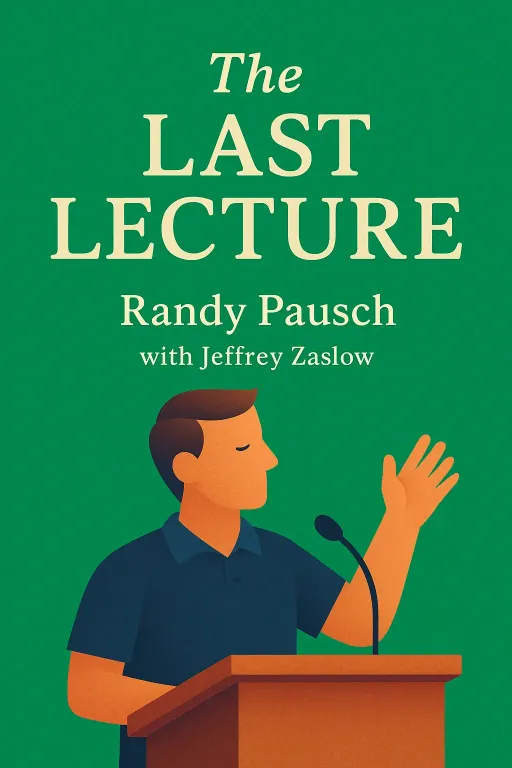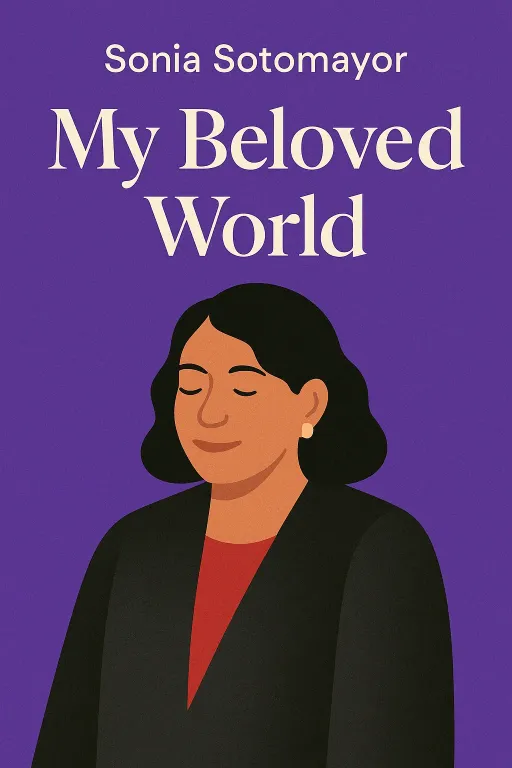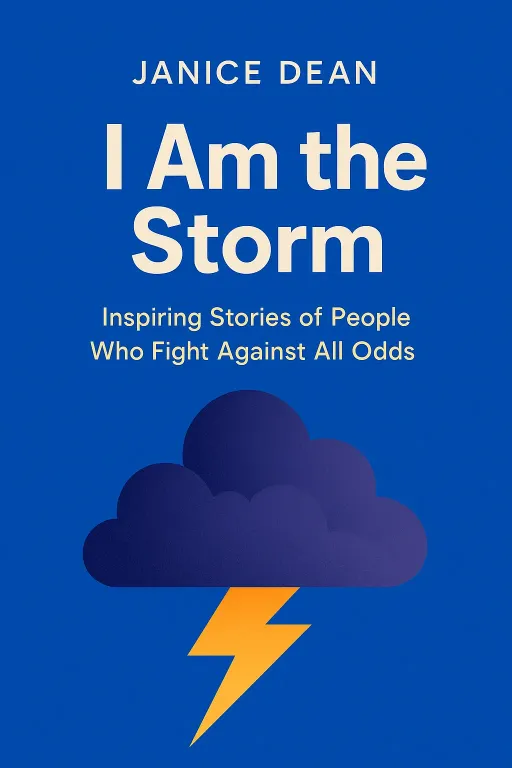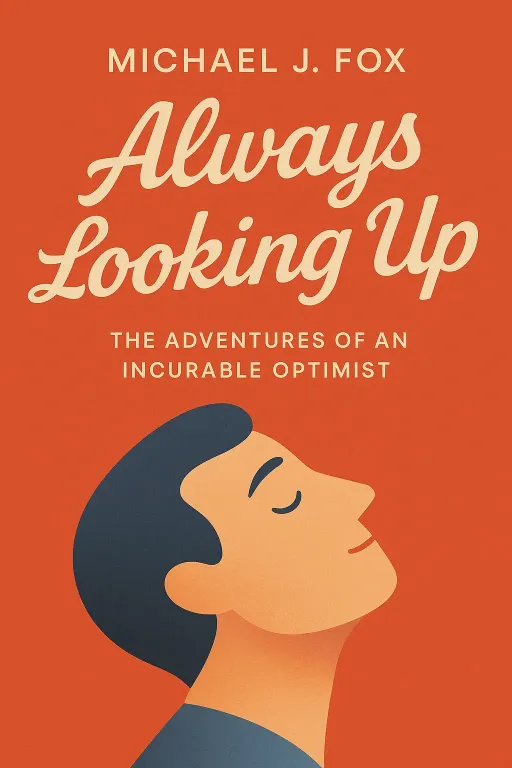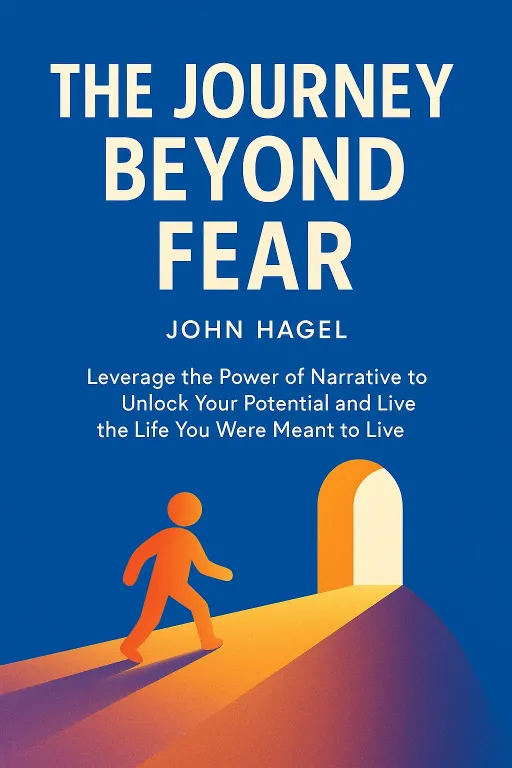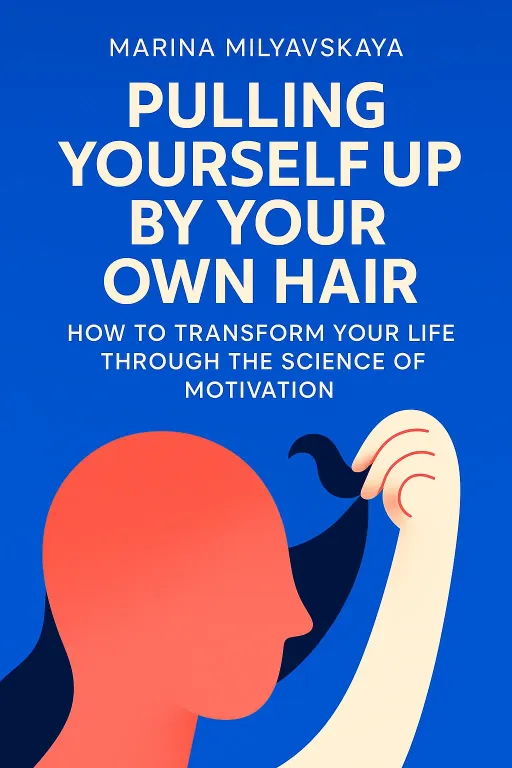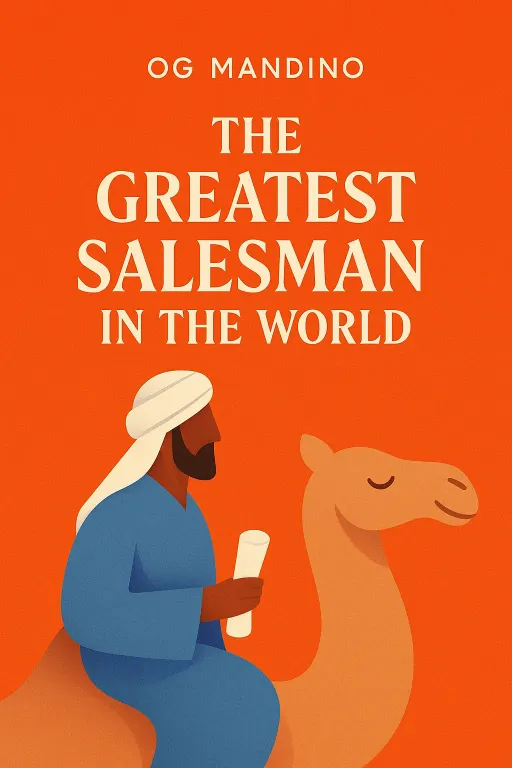
The Greatest Salesman in the World
10 minIntroduction
Narrator: What if the wealthiest, most successful merchant in the world decided, at the peak of his power, to give it all away? This is the story of Hafid, a man who built a trade empire that stretched across the known world, only to command his loyal bookkeeper to liquidate every asset and distribute the fortune to the poor. His palace, his warehouses, his millions in gold—all were to be given away. This shocking decision was not born of madness, but of a promise. For decades, Hafid had guarded a secret, a treasure far more valuable than diamonds, contained within a simple wooden chest. This treasure was the source of all his success, happiness, and peace of mind.
The mystery of Hafid’s success and his ultimate act of generosity is unraveled in Og Mandino’s timeless parable, The Greatest Salesman in the World. The book reveals that true success is not a matter of luck or talent, but the result of internalizing a set of powerful, life-altering principles contained within ten ancient scrolls.
The Journey Begins with a Tested Desire
Key Insight 1
Narrator: The story begins not with the powerful merchant, but with a young, ambitious camel boy named Hafid. Dissatisfied with his humble station, Hafid approaches his master, the great merchant Pathros, and declares his desire to become a salesman. He dreams of wealth and status, driven by the hope of winning the affection of a wealthy man’s daughter. Pathros, a man of immense wisdom, sees the fire in the boy but understands that ambition alone is worthless. He challenges Hafid’s materialistic view, telling him, "True wealth is of the heart, not of the purse."
To test the boy’s resolve, Pathros gives him a single, finely woven red robe and a seemingly simple task: go to the poor village of Bethlehem and sell it. He offers no training, no techniques, only a single, powerful precept: "Failure will never overtake you if your determination to succeed is strong enough." This first assignment is not a lesson in sales, but a profound test of character, designed to see if Hafid’s determination can withstand the harsh realities of rejection and failure.
The First Test Reveals Compassion Over Commission
Key Insight 2
Narrator: In Bethlehem, Hafid experiences the crushing weight of failure. For four days, he is met with indifference and rejection. The villagers are too poor, and his sales pitches fall on deaf ears. Discouraged and questioning his own abilities, he nearly gives up. As he seeks shelter for the night in a cold cave, he makes a discovery that changes the course of his life. He finds a young couple huddled together with their newborn infant, who is shivering and vulnerable in the frigid air.
In that moment, Hafid is faced with a choice between his ambition and his humanity. He looks at the single robe—his only chance to prove himself to Pathros, his ticket to a new life—and then at the suffering child. Without hesitation, he wraps the infant in the valuable robe, sacrificing his mission for an act of selfless compassion. He returns to the caravan empty-handed, convinced he is a failure. But as he approaches, his master Pathros sees a brilliant star shining directly above Hafid, a star that seems to have followed him from Bethlehem. When Hafid confesses he gave the robe away, Pathros reassures him, "Sleep in peace for you have not failed." Hafid’s act of love was the sign Pathros had been waiting for, proving he was the worthy successor he had sought for years.
The Inheritance of Wisdom and Responsibility
Key Insight 3
Narrator: On his deathbed, Pathros finally reveals the true source of his success. It wasn’t business acumen or market knowledge, but a small cedar chest containing ten ancient scrolls. These scrolls, he explains, were given to him long ago after he saved a wealthy traveler, who then mentored him in their wisdom. Pathros passes this incredible inheritance to Hafid, but with three strict conditions.
First, Hafid must swear to follow the instructions in the first scroll, which teaches the method for internalizing the wisdom of the others. Second, he must give half of all his earnings to those less fortunate, ensuring his success is always tied to generosity. Third, and most importantly, he must keep the scrolls a secret until he, in turn, receives a sign revealing the one person destined to be their next guardian. With only one hundred gold talents to his name, Hafid is sent to Damascus, not with a fortune, but with a blueprint for creating one, founded on principles of discipline and charity.
The Foundation of Success is Mastering Good Habits
Key Insight 4
Narrator: Upon arriving in Damascus, overwhelmed by fear and self-doubt, Hafid finally opens the first scroll. Its message is the bedrock of the entire philosophy: "I will form good habits and become their slave." The scroll argues that the difference between those who succeed and those who fail lies in the nature of their habits. Since all humans are slaves to habit, the key is to consciously choose and cultivate good ones.
To achieve this, the scroll lays out a strict discipline. Hafid must read each of the ten scrolls, in order, for thirty consecutive days. He must read it in the morning, again at midday, and once more at night before sleeping. This constant repetition is designed to move the wisdom from conscious thought into the subconscious mind, until the principles become an automatic part of his character and actions. The scroll uses the metaphor of the olive tree, the king of trees, which takes a hundred years to grow, contrasted with the onion plant, which withers in weeks. True, lasting success, it teaches, is not built overnight but cultivated slowly and patiently through the power of disciplined, daily habits.
The Guiding Principles of Love, Persistence, and Uniqueness
Key Insight 5
Narrator: As Hafid moves through the scrolls, he internalizes a series of powerful, transformative principles. The second scroll declares that love is the greatest weapon, capable of breaking down walls of suspicion and opening hearts. Hafid learns to greet every person and every circumstance with love, praising others instead of criticizing and looking for the good in everyone.
The third scroll instills in him an unbreakable will to persevere with its central mantra: "I will persist until I succeed." It compares this quality to the bull in the fighting arena, whose bravery is measured by its willingness to charge again and again, even after being pricked by the picador’s lance. Success, the scroll teaches, is found at the end of the journey, not the beginning, and belongs to those who refuse to acknowledge defeat.
The fourth scroll teaches Hafid to embrace his individuality, declaring, "I am nature's greatest miracle." It commands him to stop imitating others and instead capitalize on his unique qualities, accentuating his differences to stand out in the marketplace. By recognizing his own inherent value and potential, he learns to approach his work with unshakable confidence.
The Call to Action and Purpose
Key Insight 6
Narrator: The philosophy of the scrolls is not passive; it demands constant, urgent action. The fifth scroll commands Hafid to live each day as if it is his last. This creates a profound sense of urgency, forcing him to cherish every hour and banish the time-wasters of procrastination, doubt, and fear. By treating each day as a precious, unrepeatable gift, he learns to fill his hours with productive labor and acts of love, ensuring no moment is wasted.
This sense of urgency is crystallized in the ninth scroll, which contains a simple, powerful command: "I will act now." This phrase becomes his trigger to overcome hesitation and fear. Whenever he feels paralyzed by doubt or tempted by delay, he repeats these words until they propel him into motion. The scrolls teach that dreams, plans, and goals are worthless without the engine of action. It is only by acting now, in the present moment, that potential can be transformed into reality and a life of purpose can be achieved.
Conclusion
Narrator: The ultimate takeaway from The Greatest Salesman in the World is that extraordinary success is an inside-out process. It is not achieved by mastering external sales techniques, but by fundamentally re-engineering one's own character. The book’s genius lies in its assertion that greatness is the product of small, disciplined, daily habits practiced with unwavering consistency until they become second nature. The principles of love, persistence, and action are not just strategies for business; they are a blueprint for a life of fulfillment and meaning.
The book leaves its readers with a profound and practical challenge. It’s easy to be inspired by the story of Hafid and the wisdom of the scrolls. The difficult part is embracing the discipline they demand. The most challenging idea is that we already possess all the potential we need; the only question is whether we have the determination to cultivate it, day after day, until we, too, become a slave to good habits.
